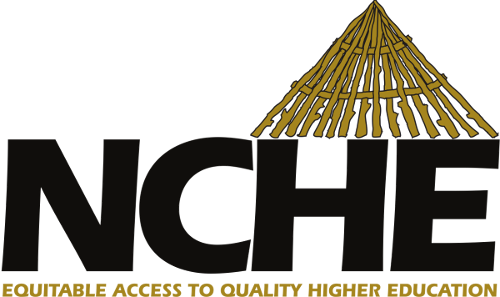It is any programme which is registered from level 5 – 10 on the National Qualifications Framework (NQF).
Frequently Asked Questions
The funding framework is only for public Higher Education Institutions (HEIs) since private HEIs are not part of public funding. Private HEIs could, in future, be part of specific funding (i.e. competitive funds) when this kind of funding is implemented.
The two processes can be carried out concomitantly. Thus, it does not matter which one is done first.
The statistics that the HEIs provide to NCHE will help in assessing the current status of higher education in the country and will help in making decisions and necessary changes needed in order to attain the goals set out in the National Development Plans (NDPs).
A private HEI may apply for registration once the qualifications offered by the institution are registered on the NQF – a function which is carried out by the Namibia Qualifications Authority (NQA) – the institution is audited; and its programmes are accredited by the National Council for Higher Education (NCHE).
The HEIs will not be able to access other HEIs data on the HEMIS, only their own.
No, it does not. The registration of private HEIs is the sole mandate of the NCHE as prescribed by the Higher Education Act, 2003 (Act Nr. 26 of 2003).
All higher education providers irrespective of the type of institution they are, are required to provide higher education statistics annually for the Higher Education Management Information System (HEMIS).
All three are external quality assurance agencies. However, the main differences in the roles of these bodies are:
- The NCHE is responsible for quality assurance in higher education (HE).
- The NQA is mainly responsible for administering the NQF, but it is also responsible for accrediting persons, institutions and organizations providing education and courses of instruction or training.
- The NTA is responsible for quality assurance in Vocational Education and Training (VET).
No, it does not. The Namibia Students Financial Assistance Fund (NSFAF) at the Ministry of Education provides loans and grants to Namibian students.
Only academic staff at public HEIs in Namibia are eligible for ETSIP financial assistance. Thus, administrative staff may not apply for financial assistance through ETSIP, but rather through the institutions' own Staff Development Fund.

